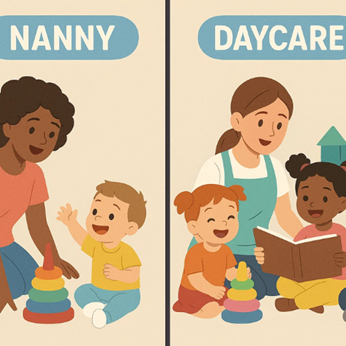Food Allergy in Toddlers Explained
My experience and observation of my children and that of others tells me that though we may want to give our toddlers a varied diet, 2-4% of the children in the age group of 1-3 years develop an allergy or intolerance to certain foods that they grow out with age. Being an immune reaction to a particular food or foods, food allergies range from mild to severe, with some allergic reactions being life-threatening.
The most common food allergy is cow’s milk allergy or CMA that when undiagnosed distresses the infants and leaves the family anxious. Caused when the immune system identifies a protein in cow’s milk as harmful, its consumption triggers an allergic reaction that shows up as tummy pain, reluctant feeding, moderate to severe eczema, loose stools or constipation, with more severe symptoms being anaphylaxis and breathing problems.
Here are some of the symptoms that occur quickly include:
• Breathing difficulties that express themselves as chest tightness, congestion, cough, and wheezing
• A flare up of eczema
• Hives
• Rashes, itching and redness of the skin
• Sudden diarrhea nausea
• Nausea
• Swelling of lips tongue, face
Some symptoms that occur late include:
• Abdominal pain or colic
• Mucus or blood in stools
• Constipation
• Loss of appetite
• Diarrhea
• Eczema
• Pallor
• Reflux
• Vomiting a few hours after a meal

It would be best to understand all about food intolerance that is different than food allergy; food intolerance is a reaction that is not connected with the immune system and is rarely life threatening. It could be a non-allergic reaction as a child’s inability to digest lactose in milk, or to tolerate high levels of acidity or other chemical factors such as histamine or salicylate in citrus fruits and vegetables like tomato.
Causing a delayed reaction, symptoms could include headache, abdominal pain, diarrhea and vomiting, bloating and constipation or a harmless rash around the mouth. Some more of the foods that cause food intolerance in toddlers are cow’s milk, eggs, peanuts and tree nuts, cereals containing gluten like wheat, rye, barley and oats, fish, some food additives, sesame seeds and soya.
A few things that you can do to manage a food allergies or intolerance:
Contact your family general practitioner in case your toddler shows signs and symptoms of food allergy/intolerance for diagnosis; he/she may refer you to a specialist or a specialist dietician.
The best way to manage food allergy is to fully avoid the food that has been diagnosed to cause allergy; some toddlers may however be able to tolerate small amounts without any harmful effects.
It is also very important to know the foods to be avoided and check food labels and know the level each food is to be avoided; a specialist dietician could help you in this regard.

A special mention is to be made about symptoms of cow milk allergy that are often mistaken for other common conditions such as colic and eczema caused by other conditions; their symptoms vary from baby to baby and could be immediate or delayed following exposure.
Cow’s milk allergy that is the most common food allergy in infants and young children is generally confused with lactose intolerance. While cow milk allergy is an immune system allergic reaction to the protein in cow’s milk; lactose intolerance is the inability of the digestive system to digest lactose a sugar in milk.
All these points would help you to correctly manage food allergies/ intolerance, however if symptoms do not still resolve it would help to consult the allergy clinic for reassessment and advice. Last, but most important realize that infants soon grow out of most food allergies including cow milk allergy.
Take the next step toward your goals
Share your requirement and find the best care providers in your area
-
Looking for a caretaker’s job? Build your profile and get in touch with families in your vicinity.
-
Discover nannies, babysitters, cooks, housekeepers, pet sitters, and elder care under one roof.
-
Get all the support you need to run a successful care center.
-
Search for appropriate centers near you depending on your needs.
Care Corner Insights: Blog Library

Nanny vs. Daycare in Naperville, IL: What Works Best for Indian Working Couples?
Hey Naperville Parents! Balancing work and family life is no small feat—especially for Indian working couples trying to juggle careers, household responsibilities, and parenting. One of the biggest decisions you’ll face? Choosing between a nanny or

Housekeepers in Sugar Land, TX: Deep-Cleaning Checklists for Indian Homes
Housekeepers in Sugar Land, TX: Deep-Cleaning Checklists for Indian Homes Indian cooking = flavor + spices + love… but also oil splatters and stubborn stains. Time to reset! Degrease stovetops, chimneys, and exhaust fans. Scrub countertops, tiles,

12 Easy After-School Snack Ideas for Kids Who Get Hungry Quickly
School’s out, and the hunger hits hard! If your little ones come home ravenous and ready to raid the kitchen, you’re not alone. After-school snack time is prime time for refueling, recharging, and maybe even sneaking in a little nutrition. So here ar

Vegetarian Home Cook Services in Sunnyvale, CA: North & South Indian Meal Prep for Busy NRIs
Between work, family, and daily responsibilities, finding time to cook fresh meals can be difficult. That’s when a vegetarian home cook service in Sunnyvale makes life easier—bringing authentic North and South Indian dishes straight to your table. T

Hiring a Live-In Nanny in Plano, TX: A Practical Guide for NRI Households
For NRI families living in Plano, TX, raising children while managing work and household responsibilities can feel overwhelming. Many parents find that hiring a live-in nanny provides the right balance of support, convenience, and cultural comfort. U

Daycares in Fremont, CA for Indian Toddlers: Curriculum, Food Policies & Waitlists
You’ve probably met them — the parents at the park chatting about Montessori vs. play-based learning while handing their toddler a homemade paratha. The ones who ask every daycare in Fremont if they serve vegetarian meals. And yes, the ones who have

Babysitters in Jersey City, NJ for NRI Parents: Last-Minute, Weekend & Evening Options
You’ve probably seen them — the parents juggling grocery bags in one hand and a phone call to grandma in India in the other, while trying to keep their toddler from running into the road. The ones who cancel dinner plans because the babysitter bailed

Best Nanny Services in Edison, NJ for Indian Families: Costs, Language, and Cultural Fit
Edison, NJ, is home to one of the largest Indian communities in the U.S., and finding a nanny here often means looking for more than just childcare skills. For Indian families, cultural understanding, language fluency, and traditional values play a b

What Is Helicopter Parenting? How It Affects Children and Ways to Avoid It
You’ve probably seen them. The parents at the playground who shadow every move, wiping invisible germs off the slide before their child touches it. The ones who fill out job applications for their teens. And yes, the ones who email college professors

Are Weighted Blankets Safe for Children? Pros and Cons Explained
Weighted blankets have become a cozy trend in recent years. From helping adults sleep better to calming anxiety, they’ve earned a spot in many households. But when it comes to kids, especially the little ones, parents often ask: Are weighted blankets